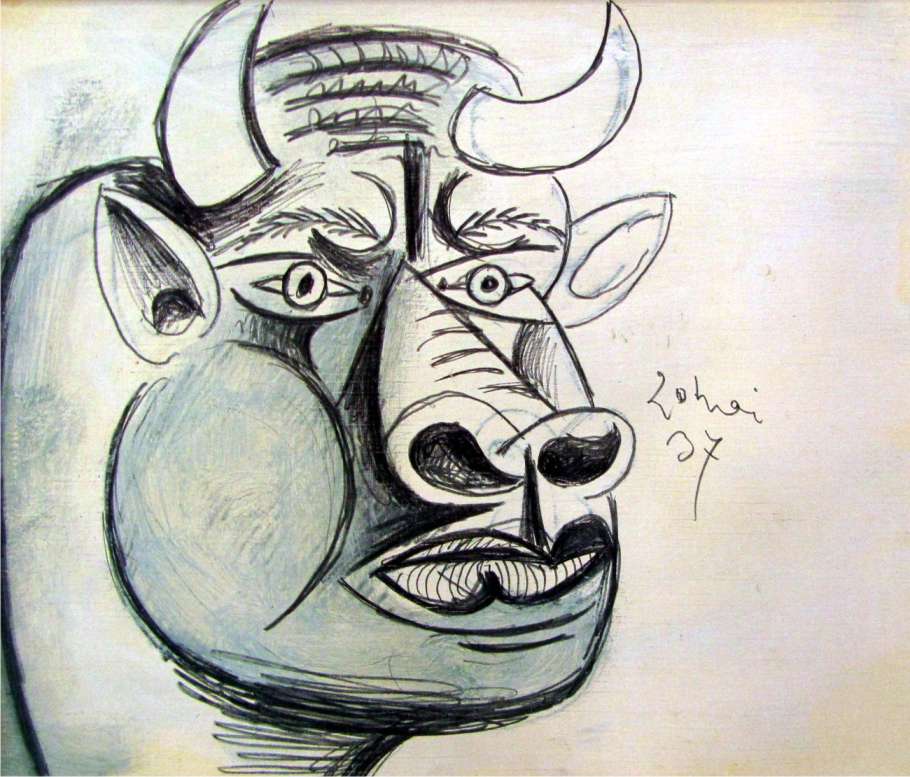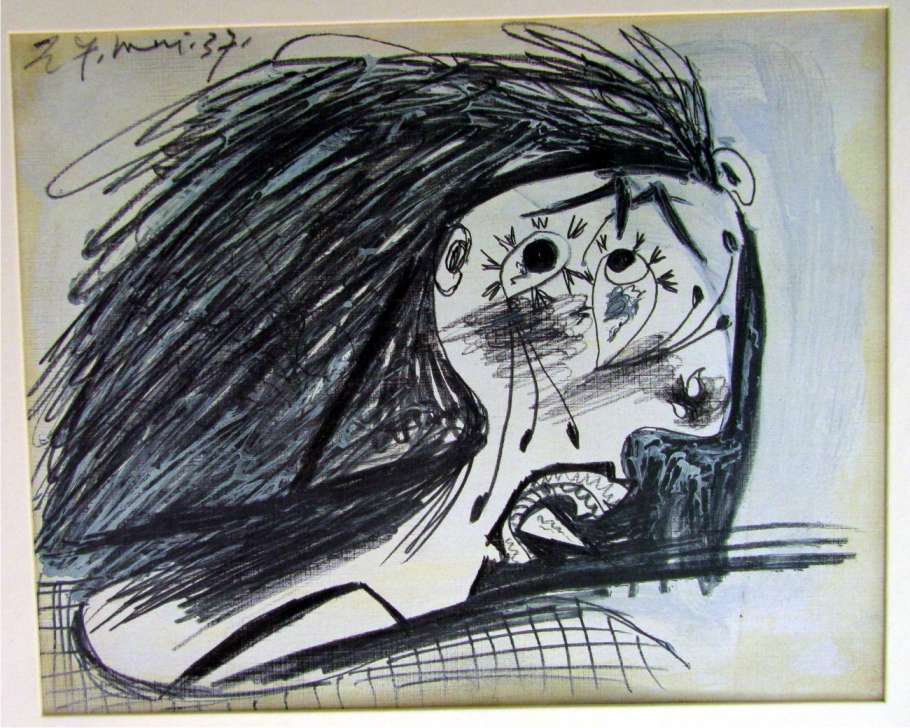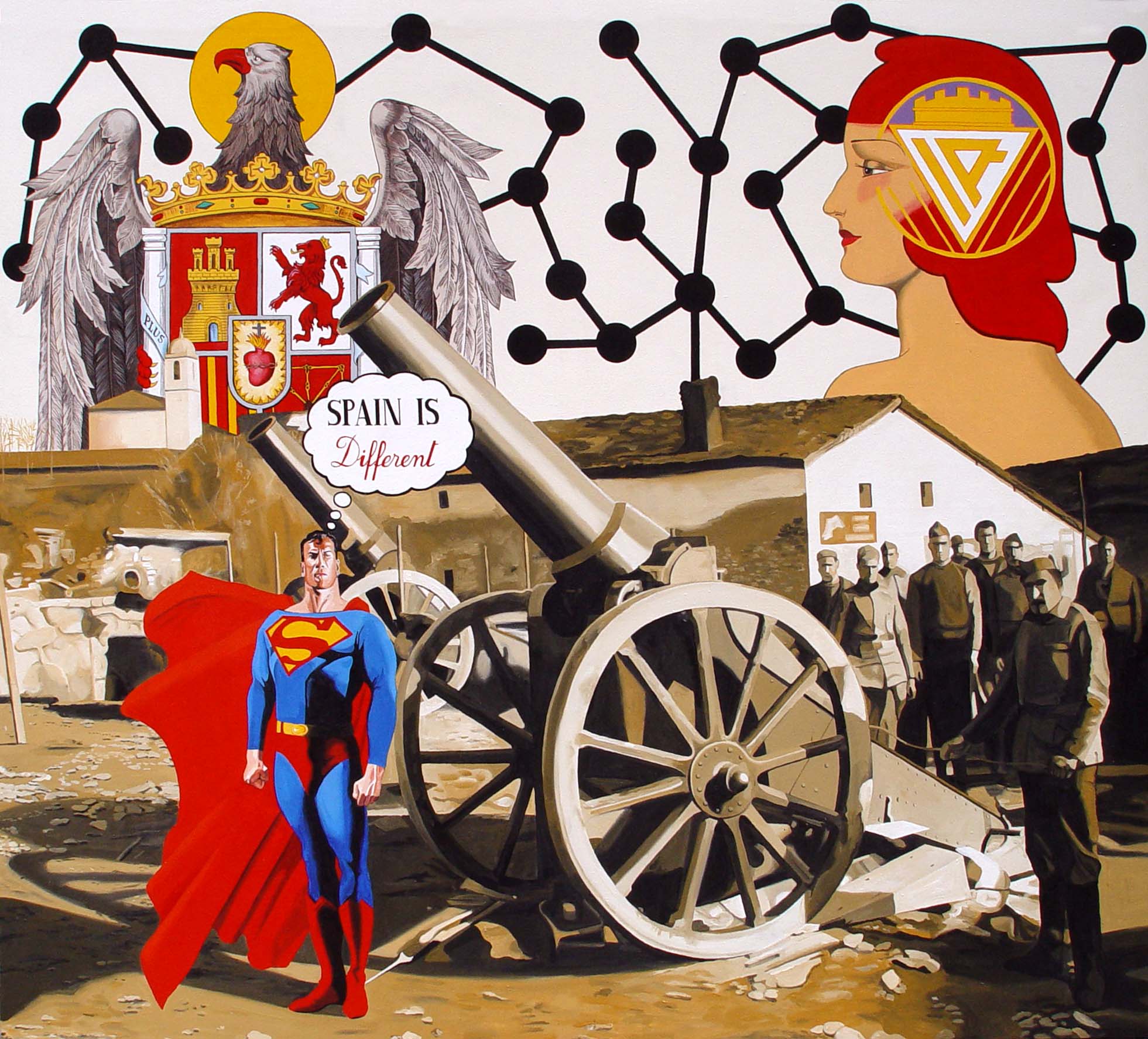Art and Activity: Interactive Strategies for
Teaching with Art
MOMA :
Final Peer Review
Instructions
Since this course is all about
learning through doing, your final project is to develop and test your own
activity-based engagement around an object or artwork of your choice. This is
your chance to synthesize and put into practice all that you’ve learned through
the course. Be creative! This is your chance to apply the course concepts to
real-world situations, and to get valuable feedback from fellow educators.
As a reminder because this course
is offered in English, please submit your final project in English only.
Format
In your final project write-up,
please provide the following information in the order that it is presented
below:
Art and Activity: Interactive Strategies for
Teaching with Art
MOMA :
Final Peer Review
Instructions
As
a reminder, because this course is offered in English, please
send your final project in English only.
send your final project in English only.
Less questions
Please
upload an image of an artwork and:









- Describe how your theme work and project is connected to the general degree curriculum:From the individual to the general.The outline of the final prototype begins with the creation of the parts.The elements represented that will form a whole, giving meaning to the intention and ideology of the artist.Winners and losers. Ideas and counter-ideas.History of power. Economic, social and political reasons for this war and other wars. Why this picture?Describe two goals of your assignment activity and explain how they connect to the artwork.Write clear instructions for the other teacher should lead to your activity.Title of your message by including subject and grade level
- In this case Picasso, and Guernica. Where you can atomize all the issues that throughout history have been many.
The
best way to present the Guernica to the little ones is to say that the picture
or the picture before us is a symbol of peace. In this way it will be the best
way for them to be able to understand it before explaining the reasons why they
are painted.
Guernica 3D
The Children of the Spanish Civil War
Here are a couple
of examples:
Literacy, 3rd
grade (primary)
History, Grade
10 (Secondary)
Format
At
the end of the project report, please provide the following information in the
order presented below:
Thematic
area: The atrocities of war, hatred and revenge.
Grade
Level Objective Rank: Grade of Art History.
Theme:
Creative individuality, wounded heart, war and revenge represented in
contemporary history.
Work
selection (please use the "Upload" button)
Title
work: Guernica
The
Guernica mural was acquired by Picasso from Spain in 1937. Due to the outbreak
of World War II, the artist decided that the painting should remain in the
custody of the Museum of Modern Art in New York until the end of the war. In
1958 Picasso renewed the loan of the painting to the MoMA for an indefinite
period, until the democratic freedoms were restored in Spain, finally returning
the work to Spain in the year 1981.
Artist:
Pablo Picasso
Date:
1937
Materials:
Oil on canvas
Description
of the activity: What will the students do? What are the objectives of the
activity and how does the activity connect to the work of art?
Reflection:
What will your students (or participants) create in response to the activity?
For example, are they sharing photos, drawings, texts, or other documentation?
Elements of the composition.
*******************************************************************************
Guernica
1.
Arise to the students the following questions:
-Do you know what is Guernica?
-Could you tell where is?
-What symbolize Guernica?
This activity will take place orally with the whole class and has a duration of 5 minutes.
2.
Show students the next photo using the overhead projector or cannon and the questions listed below will be raised. Students answer the questions orally with your partner and then discussed it with the entire group.
The activity has a duration of 10 minutes.
-Do you think that you happened?
-Where ubicarías this photograph?
-Who do you think that he has caused so much destruction? -Does feelings cause you this photograph?
-Do remember you any image that you've seen recently on television?
To what?
3.
Read the text and discuss with your partner the questions listed below. Then discuss the answers with the entire group.
The bombing of Guernica was held on April 26, 1937 and was the first that was performed in Europe on a defenseless civilian population. It happened on a market day and held it the Condor Legion, an elite unit that Hitler had sent to Spain not so much for helping Franco in their war as for its pilots prepare for which he would soon unleash, and took part in operation 43 planes of the most advanced models of that time : Heinekel I 111, the Dornier, the Junker and the Messerschmitt. The attack began at 4: 30 in the afternoon and lasted three hours. […] The destruction was so great that within three hours, German pilots bombed blindly, since the smoke already hiding the villa. […] The exact number of victims, could never be established although the historians speak of 1,500 (for a town of 7,000 residents). Franco's press said had been Republicans own that, in their retreat, had burned the town, but no one believed him. The world is convulsed with what happened and, from that moment, Guernica became the symbol of the war, as it would later be Hiroshima. […] LLamazares, J. All with Picasso. More than a box
(a) what was the Condor Legion?
(b) do you think that German aviation helped in front of Franco?
(c) do you think that it was the target of the bombing?
The activity has a duration of 10 minutes.
These initial activities will serve to work cultural contents exposed in section 3.4.1. […]
4.
Be formulated to the students the following questions and they work orally with the entire group.
-Do you know any picture that symbolizes the horror of war?
-Do you know this picture? (will show them the image with the overhead projector or canon)
-How it is called and who is its author?
-What Museum is currently exposed?
-Where do you think the scene develops?
-What symbolize?
-What do each of the elements that compose it?
This first part of the activity has a duration of 10 minutes.
****
Then goes to work separately each one of the figures that make up the picture.
Students receive a copy with each of the elements listed in the table as set out in the following activity.
It is not that the students know the symbolism of the picture, because even the experts are in agreement, the aim is that express what it means to them each figure and, therefore, the picture.
This activity will be done in groups of four.
Students must write their conclusions placed his works on the walls of the class.
This second part of the activity has a duration of 15 minutes.
5.
What does for you each of these figures?
He says and writes the answers to the questions that appear together with your classmates to each figure.
What do you think symbolizing the bull?
Does the figure of the woman some meaning with the child in her arms?
How are the eyes of the woman?
Why do you think to have this way?
What this figure?
What do you think it represents?
What is the significance of the flower?
What does that hand that holds an oil lamp and that head symbolize?
Do you think that the hand and head belong to the same figure?
Do you think that this bulb is painted in this place randomly or has any meaning?
What do you think it represents?
What this figure represent?
Why are you shouting?
Final activity
1.
Read the following poema25 of Fernando Lamberg and discuss with your partner the questions listed below.
Then the questions will work with the entire group.
Guernica if could rescue
a single portrait of the century
Twenty would be «Guernica».
It is not dropping bombs
is heard the din of the bombing;
but the pain grows like a wave
and the man who lies with the broken sword
and the mother with the son died between arms
remind us that for millennia
they have tried to turn off with fire
the thirst of the people.
This poem was copied from the following Internet address: www.kaosenlared.net/noticia.php?id_noticia=34391
Historical information
The Republican Government asked Picasso that he painted a picture for exhibiting it at the Spanish Pavilion of the international exhibition in Paris, which took place in June 1937. On April 26, 1937 the German aviation bombed Guernica and this event prompted him painting his best-known painting, Guernica. When the war ended, Picasso expressed his desire to box was not in Spain until a democratic regime is not installed. The desire of the artist was fulfilled and the box was not exhibited in Spain until 1981. Regarding the symbolism of the box, nobody gets to agree. Picasso never gave its interpretation so studies about the symbolism of the table are merely speculations. In one of the few aspects in which scholars seem to agree is that Picasso used the white, black and grey tones to dramatize the scene and that the women in the picture represent the pain and suffering.
-Remember what another bombing on civilians?
-Wars you know what the most you have impacted?
Why?
-Would you dare to write with your partner a little poem about the war? (
This section will be sent them as a task to house)
The activity has a duration of 15 minutes.
Poems, once corrected by the teacher, will be placed on the walls of the class.
ELEMENTS OF THE COMPOSITION.
"If you give a meaning to certain things in my paintings it may be very true, but it is not my idea to give this meaning." What ideas and conclusions you have got I obtained too, but instinctively, unconsciously. I make the painting for the painting. I paint the objects for what they are."
PABLO PICASSO
While Picasso didn't talk about the "meaning" of his art, the nationalist symbolism of Guernica is difficult to deny. As the unofficial national symbol of the birthplace of Picasso and the stronger figure in Guernica , the most likely Bull is a symbol of the own Spain, the country remains "of foot", even after a brutal attack. While that del toro has triumphed in the painting, the general meaning ofGuernica is less optimistic, with the chaos and the reigning brutality on civilization, as much as it did during the real life Guernica bombing.
Line, color, space, contrast
Balance, texture, emphasis
Composition.
Balance, texture, emphasis
Composition.
The elements are the technical components of design. The lines, the shapes, the forms.
The principles are the effect of the organizing those elements. The rhythm of the lines. The emphasis of a focal point due to contrasting values. The unity of the design yuropa through color scheme.
The principles are the organization of the elements.
The composition is organization of the elements the organizing principles.
The composition is to self-contained design, but tends to gesture to something beyond itself.
The composition is organization of the elements the organizing principles.
The composition is to self-contained design, but tends to gesture to something beyond itself.
Gesture towards the artist.
Gesture towards the viewer of the art.
The artist, when in the process of organizing the elements and principles loses her sense of time and of identity in space and time and is constantly beginning and beginning and again organizing the elements into principles into composition that is always being created while it is being created. It is making itself as it is being made. It is preparing things while they are being prepared.
Art is the composition of the composition of and through time.
A gesture in space.
In a work, the artist generally uses a combination of compositional systems. Analyzing the "Guernica" by Picasso, we can see that the artist has used aureus in this work and that it has been used to perform a composition based on strong diagonals, asymmetrical and dynamic. We discovered the Golden division watching matches of forms and discover the squares and rectangle
 Looking at the work from right to left, you can see a desperate woman, screaming in pain within a House that collapses and burns. On your left two women, from the top looks out a window and porta in his hand a lamp, the light of truth, which illuminates the ravages caused by the barbarism. The bottom leaves House be creeping in his agony. In the Centre of the composition is the horse, twisted over itself and showing us a spur; his mouth open and his lengua-lanza show their excitement by developments. Just above is the Sun, dwarfed, oval-shaped and with a light bulb in its Center as if the smoke from the bombing would have shrunk the star King and the only source of lighting had to be artificial. A little left a bird wave wings and cries out to heaven desperate as if it unnecessarily asked an explanation for what happened. Under the legs of the horse lies the dead Warrior, his hand still holding a broken sword.
Looking at the work from right to left, you can see a desperate woman, screaming in pain within a House that collapses and burns. On your left two women, from the top looks out a window and porta in his hand a lamp, the light of truth, which illuminates the ravages caused by the barbarism. The bottom leaves House be creeping in his agony. In the Centre of the composition is the horse, twisted over itself and showing us a spur; his mouth open and his lengua-lanza show their excitement by developments. Just above is the Sun, dwarfed, oval-shaped and with a light bulb in its Center as if the smoke from the bombing would have shrunk the star King and the only source of lighting had to be artificial. A little left a bird wave wings and cries out to heaven desperate as if it unnecessarily asked an explanation for what happened. Under the legs of the horse lies the dead Warrior, his hand still holding a broken sword.
On the far left, a bull includes the scene shocked and bewildered and at his side a terrible vision: a mother overwhelmed by pain leads in her arms the body of her dead son while looks up at the sky broken by the pain and sorrow.
Picasso renounces the color to accentuate the drama and uses only shades of gray, white and black, is what art is called grisaille.
It is a "sound", the characters shout, gesticulate and die under blind pumps that just yet. The denunciation of the violence here is timeless and has always been used as a chant against the injustice of the destruction and death in any war. Picasso painted four women in desperate attitudes are the defenceless civilian population, but also to military fallen in defense and animals, the madness outside human.
A feature that the author frequently used represents the simultaneous multiple planes in the faces, as if we saw them at the same time front and profile, from there a look different from each other, producing a globalizing vision.
Technically the Guernica has Cubist traits (reduces natural forms to geometric forms) but also employs Expressionism in extreme gestures of the characters and a great purity and definition of lines that reminds us of the neoclassicism.
 ****************************************************************************************
****************************************************************************************
TO
MAKE THE SAME THEMATIC DEVELOPMENT IN THE CLASSROOM WITH THE FOLLOWING PICTURES
Pictures
announcing the time before the conflict
"The
Night Watch" by Rembrandt
CONFLICTS
AND INTERNAL VIOLENCE
"Defeat
of St. John the Baptist and Feast of Herod," Strobel "the Young"


———————————-





















